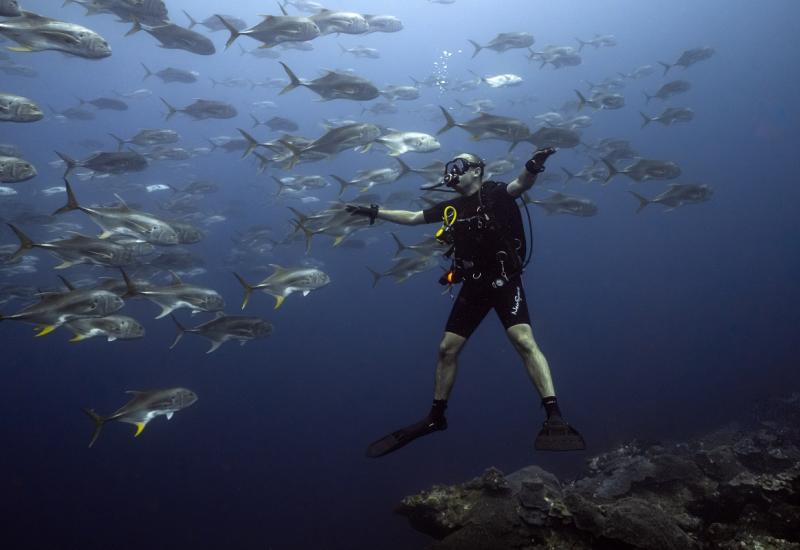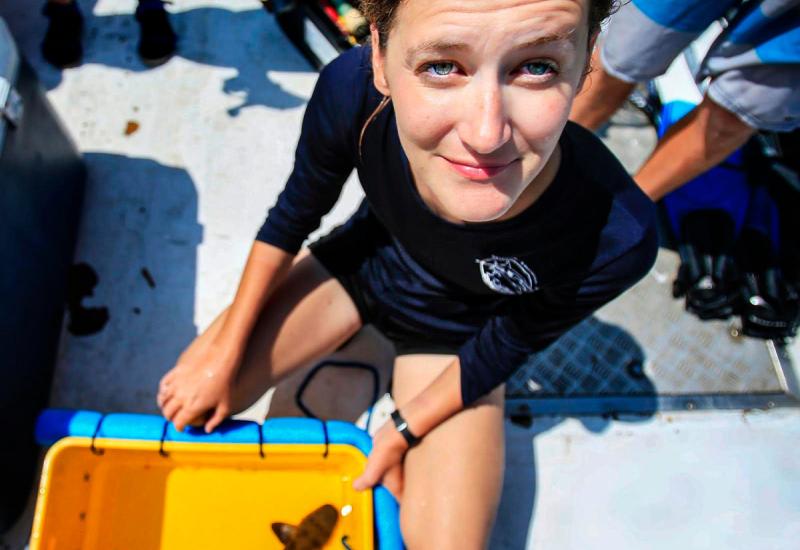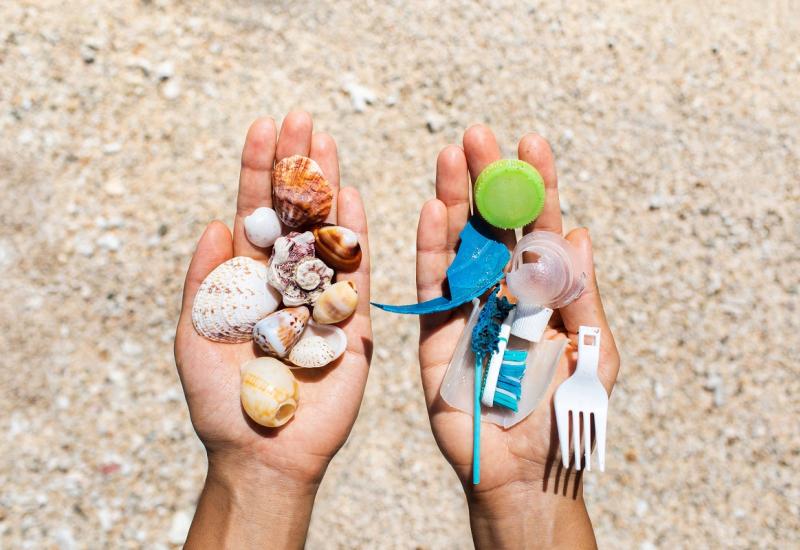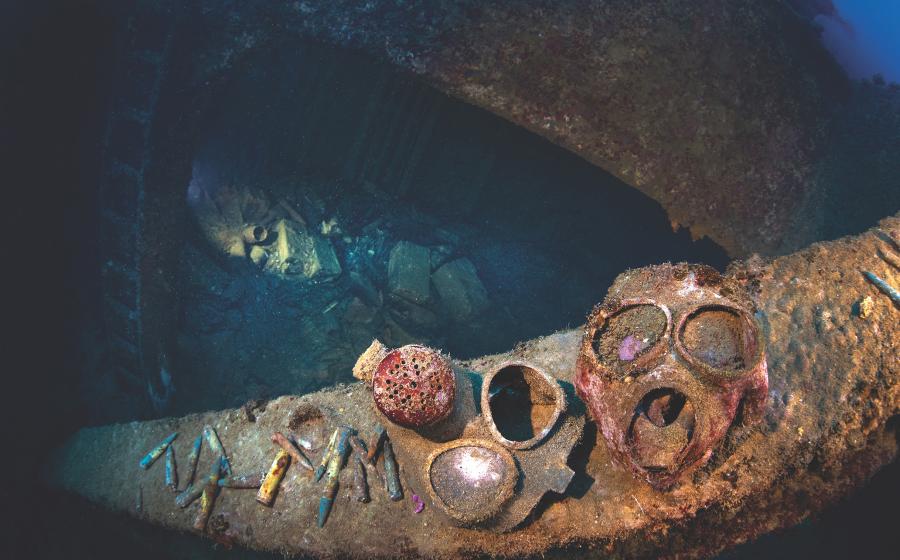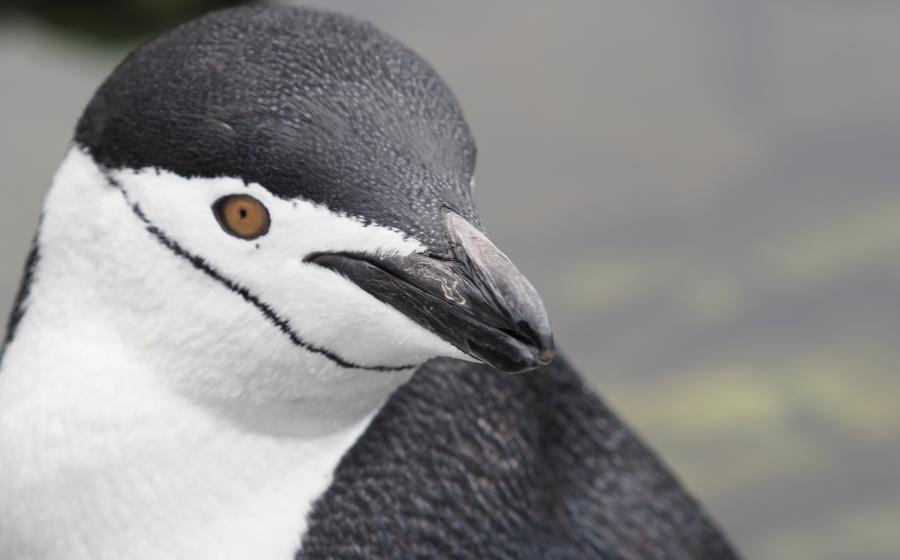The Sweet Taste of Conservation
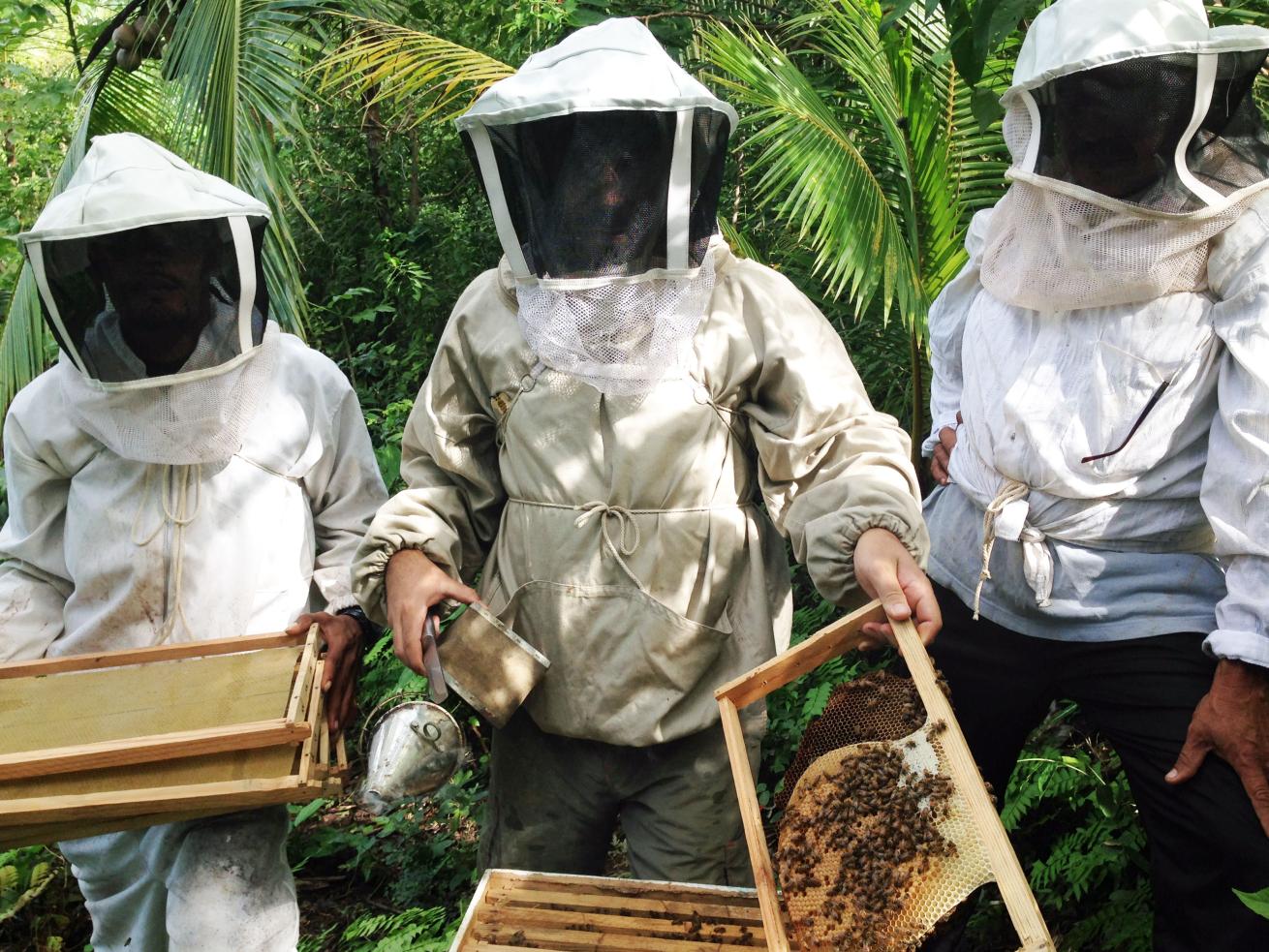
Roatan Marine ParkIsland Honey Beekeepers
The Bay Islands National Marine Park, a popular diving destination renowned for breathtaking underwater landscapes, has taken an innovative approach to reef preservation: producing and selling local honey.
Thinking Outside the Reef
For generations, fishing communities in Roatan have depended on the reef, harvesting marine life to sell to tourists and markets. However, this practice has had a detrimental effect on the fragile ecosystem. The southern Mesoamerican reef that surrounds Roatan serves as a natural barrier and is crucial for the environmental well-being of Roatan by protecting the island from erosion and storm surges.
Recognizing this issue, Roatan Marine Park (RMP) in collaboration with the community, developed a unique solution that benefits both the reef and residents of Corozal, a north-side town where 70% of the population depends on fishing. In 2013, RMP supplied materials and training to Corozal families to start beekeeping operations. Over the past eight years, the apiary has experienced significant growth, starting with just a few beehives and now housing over 100. These beehives have become a source of sustainable income for ten local families who sell honey and other bee products under the brand name Island Honey. This initiative has supplied an alternative to relying on marine life collected from the reef for livelihood and offers a new and successful way for these families to support themselves.
Related Reading: Good Viz from Good Buzz
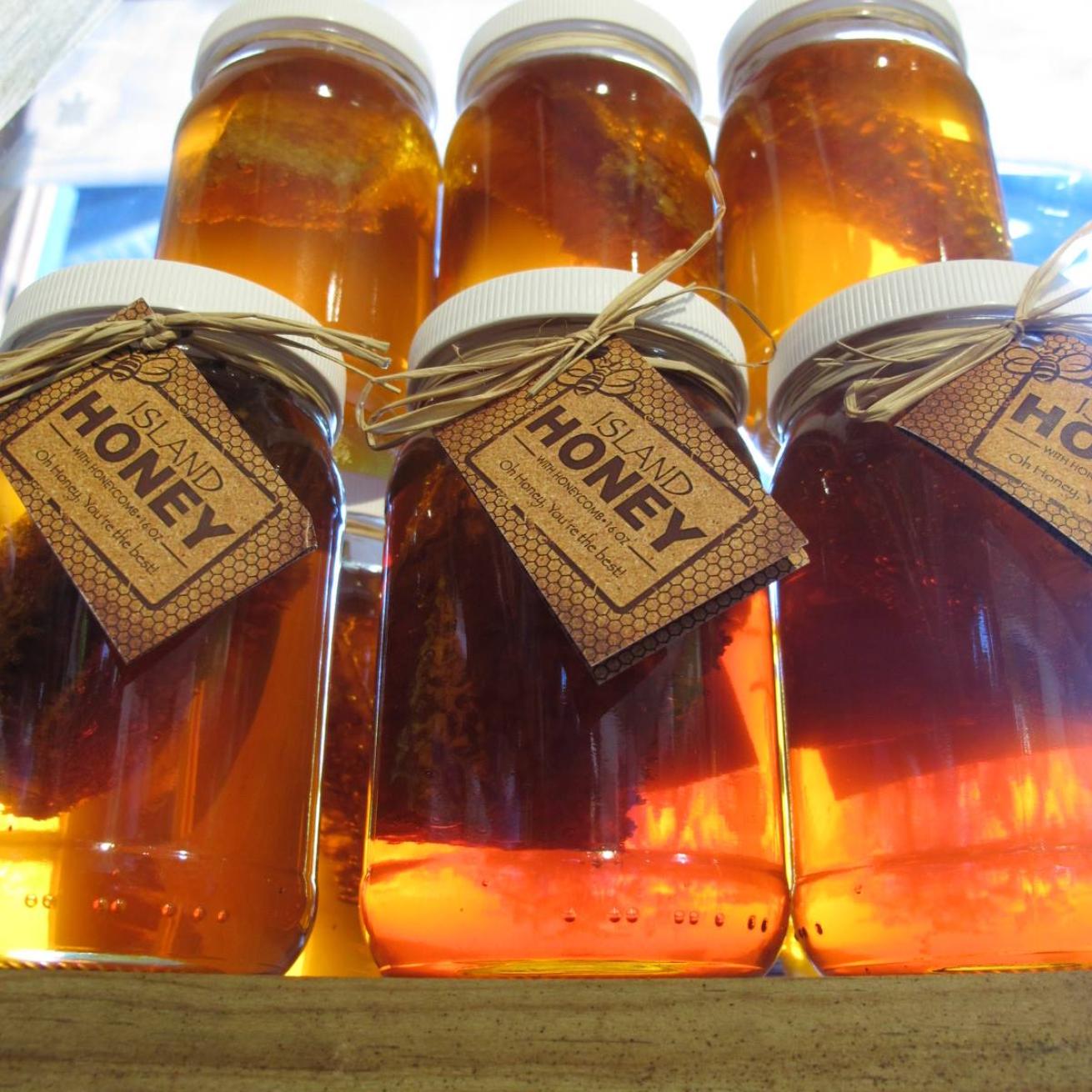
Roatan Marine ParkIsland Honey Products
Women Leading the Way
Doris Nuñez, an owner of Island Honey, started the beekeeping venture when her husband, a spearfisher, turned to beekeeping to make a living when he could no longer work on the reef. Nuñez shared some of the initial challenges, saying, "I was worried about working with bees. I was a little scared. They sting me sometimes, and they come into my house, but now, I love the bees." Even with the initial apprehension, Nuñez has developed a deep appreciation for bees over the years due to her camaraderie and codependence with her new winged workers.
When RMP introduced the project, there was an initial buzz among the youth and men in the community. But, building a productive apiary takes time, and as the men did not receive an immediate monetary reward, many individuals lost interest and left. Despite the setback, Nuñez persevered, and in 2014, Island Honey began recruiting more people to join. Currently, almost all the workers for Island Honey are women, with some added help from men during the honey harvest season. Almost ten years after its conception, Island Honey has now earned a stable reputation within the community, with most customers being local businesses or residents who visit their land to buy honey. They have become the guardians of bees on the island, rescuing hives from homes and bringing them back to the Island Honey facility.
Related Reading: World’s Deepest Female Diver Sets New Depth Record
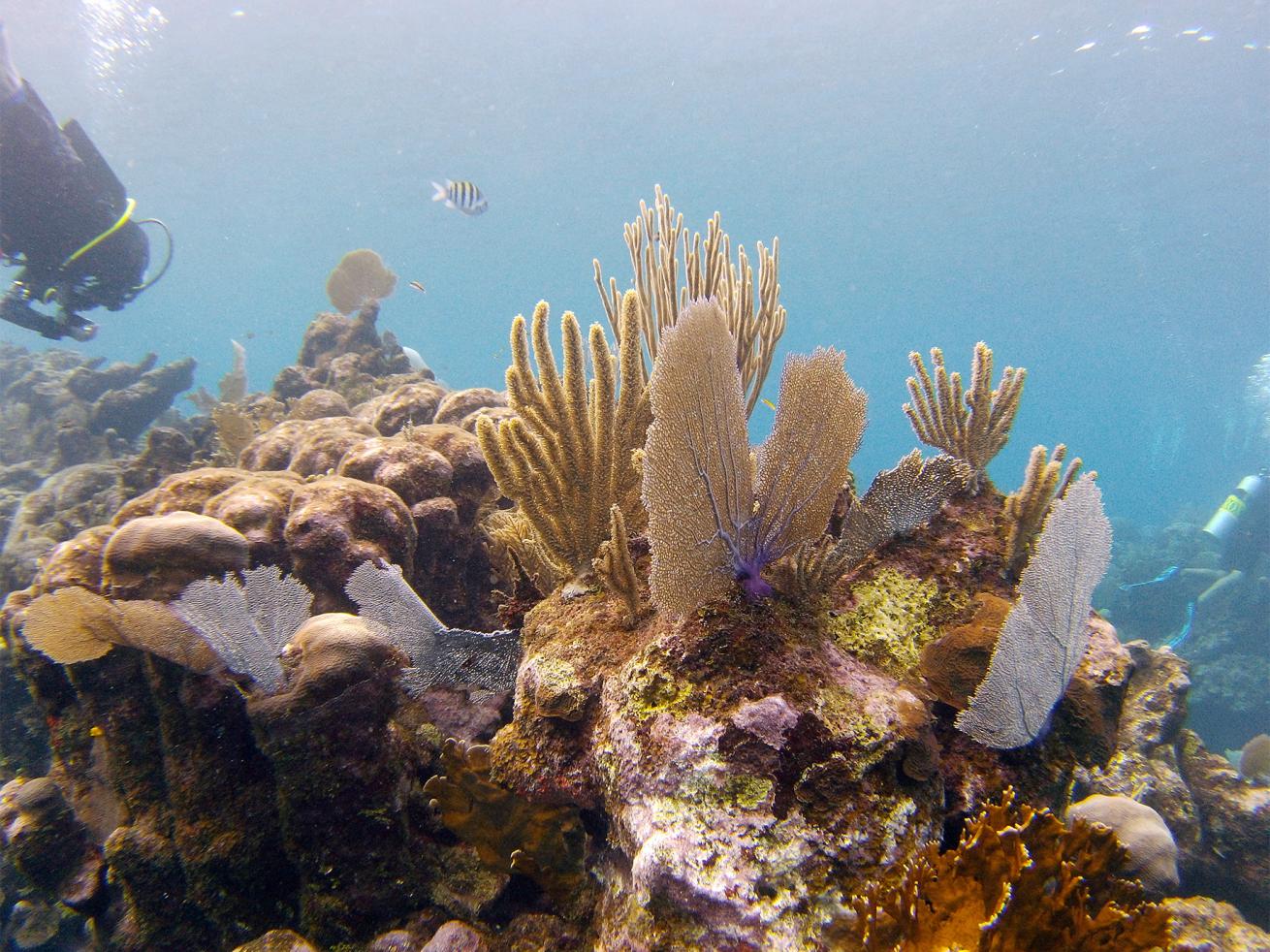
Alex DrostRoatan Marine Park
A Positive Impact
In recent years, RMP and Roatan residents have seen an increase in fish populations, including seahorses, and a decrease in lionfish, which is an invasive species harmful to the local ecosystem. This success can be attributed to the efforts like Island Honey as well as other measures, including patrolling and regulation of the reef by RMP, the national government and locals.
RMP recognizes the challenges they face in community development, particularly in areas where patrolling efforts are perceived negatively. However, they believe in the importance of engaging people and garnering support for their projects, particularly from women who feel empowerment through their work with Island Honey apiary.
Island Honey’s success in Corozal serves as a unique example of how creative solutions, unique to their location, can inspire communities and sustain their livelihoods while also protecting the environment they depend on. They have grown significantly from their humble beginnings and now have over 106 beehives, with plans to increase that number to over 150. They acknowledge that their current space is insufficient for their bees, and their building is too small for their growing operations. They express a need for more land, equipment and bees to expand further.
Related Reading: A Titanic Finding: What It’s Like to Discover a Deep Sea Reef
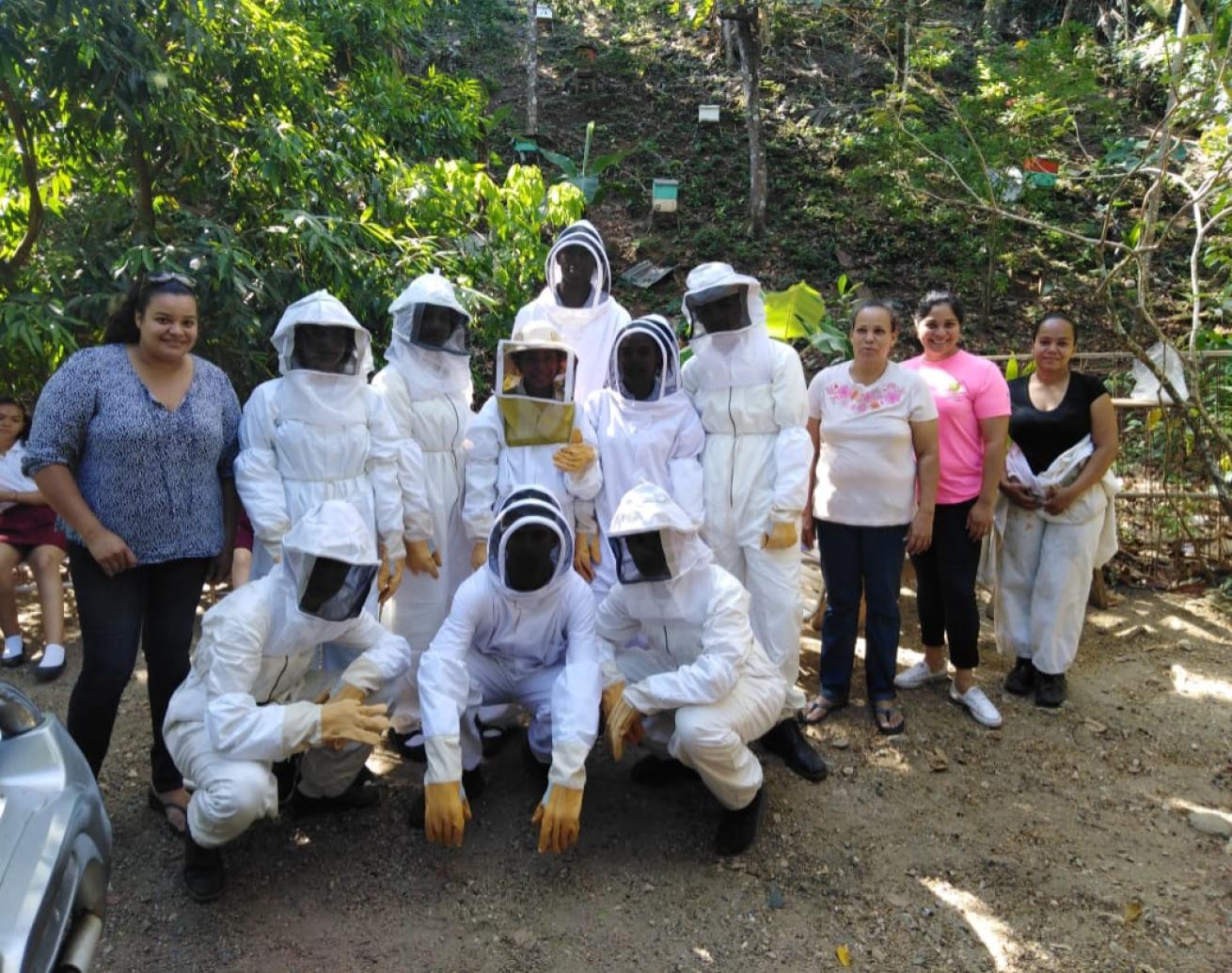
Roatan Marine ParkMarch 2019 demonstration of the honey extraction process to students from ESBIR School (Roatan Bilingual School)
Future Plans for Roatan Marine Park
When asked about their future, RMP and Island Honey envision environmental tourism (eco-tourism) as a crucial part of their plan. They offer workshops on eco-tourism throughout the island to develop alternative sustainable businesses unique to their community, like producing coconut oil. They believe caring for the environment and the reef can build livelihoods and economic sustainability for the region. “It makes sense to promote eco-tourism. Roatan has over a million tourists on the island each year… Since Island Honey is a successful initiative, we want to include everyone. We want to build facilities for workers and tourists and tell the story of the community's strength and creativity. We want to promote tourism to come see the bees and offer more than just diving and hammocks on the beach. We want to also put in the minds of our community, through workshops, that taking care of the environment can make a living,” says the Roatan Marine Park.
The honey produced by these local beekeepers, using traditional methods and sourced from the nectar of tropical flowers on the island, is utilized in bakeries, sold at the Roatan Marine Park, in dive shops, breweries, and local artisan markets. Remarkably, 100% of the profits go directly to the families who produce the Island Honey products and are responsible for caring for the bees. Island Honey boasts a delectable sweetness with a distinctive fusion of flavors, including hints of vanilla, coconut and citrus, making it a hit among tourists and locals alike. Its mouthwatering and captivating flavor is, without a doubt leading to its growing sales.
Related Reading: Where To Plan Your Next Scuba Vacation
Not only do these products support a worthy cause, but they embody the hard work and dedication of the locals and showcase the lush flavors of the tropical island. By supporting Island Honey and similar initiatives, visitors can join the vital movement for reef preservation in Honduras and contribute to the sweet solutions of sustainability and community empowerment.

